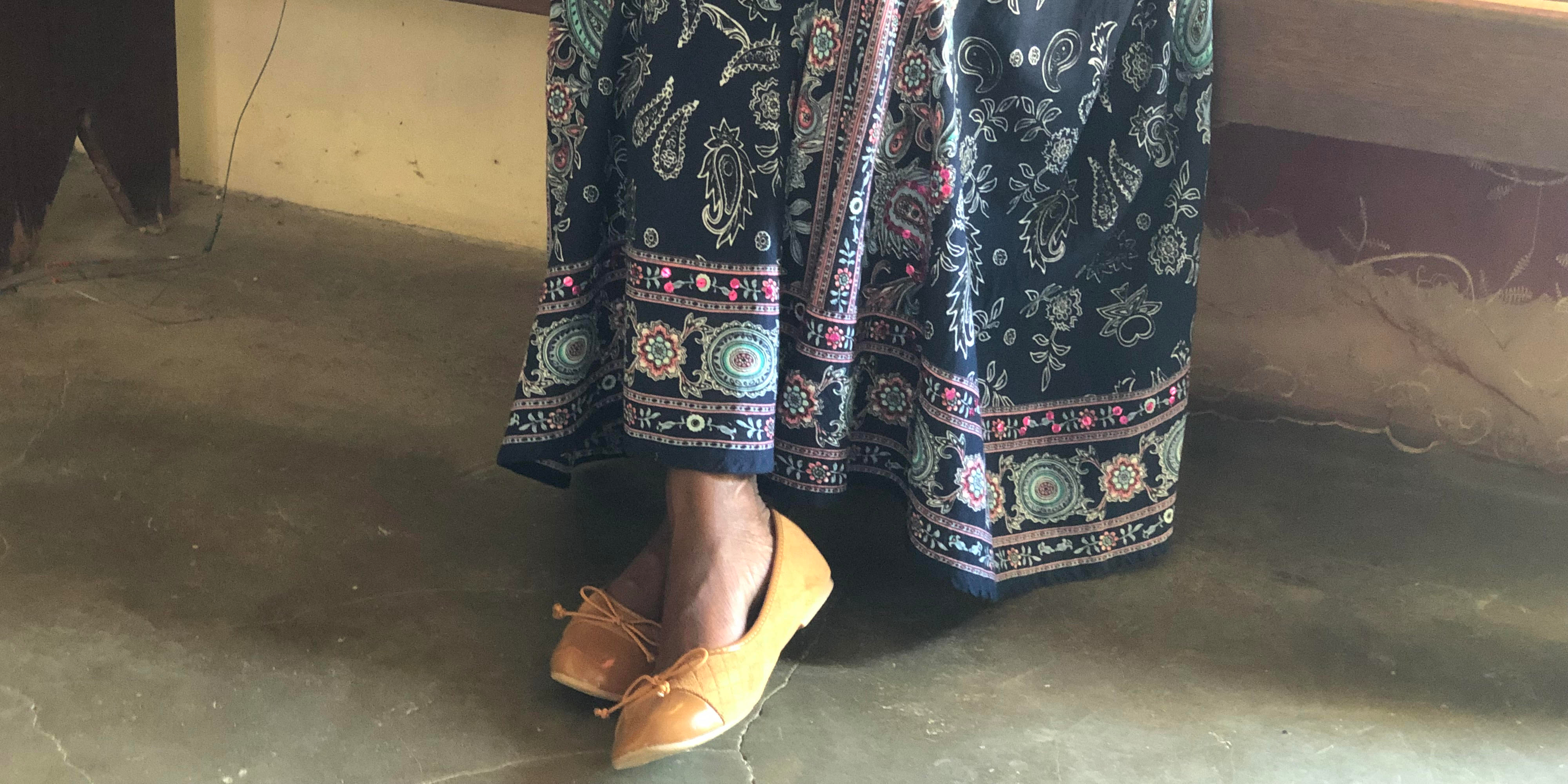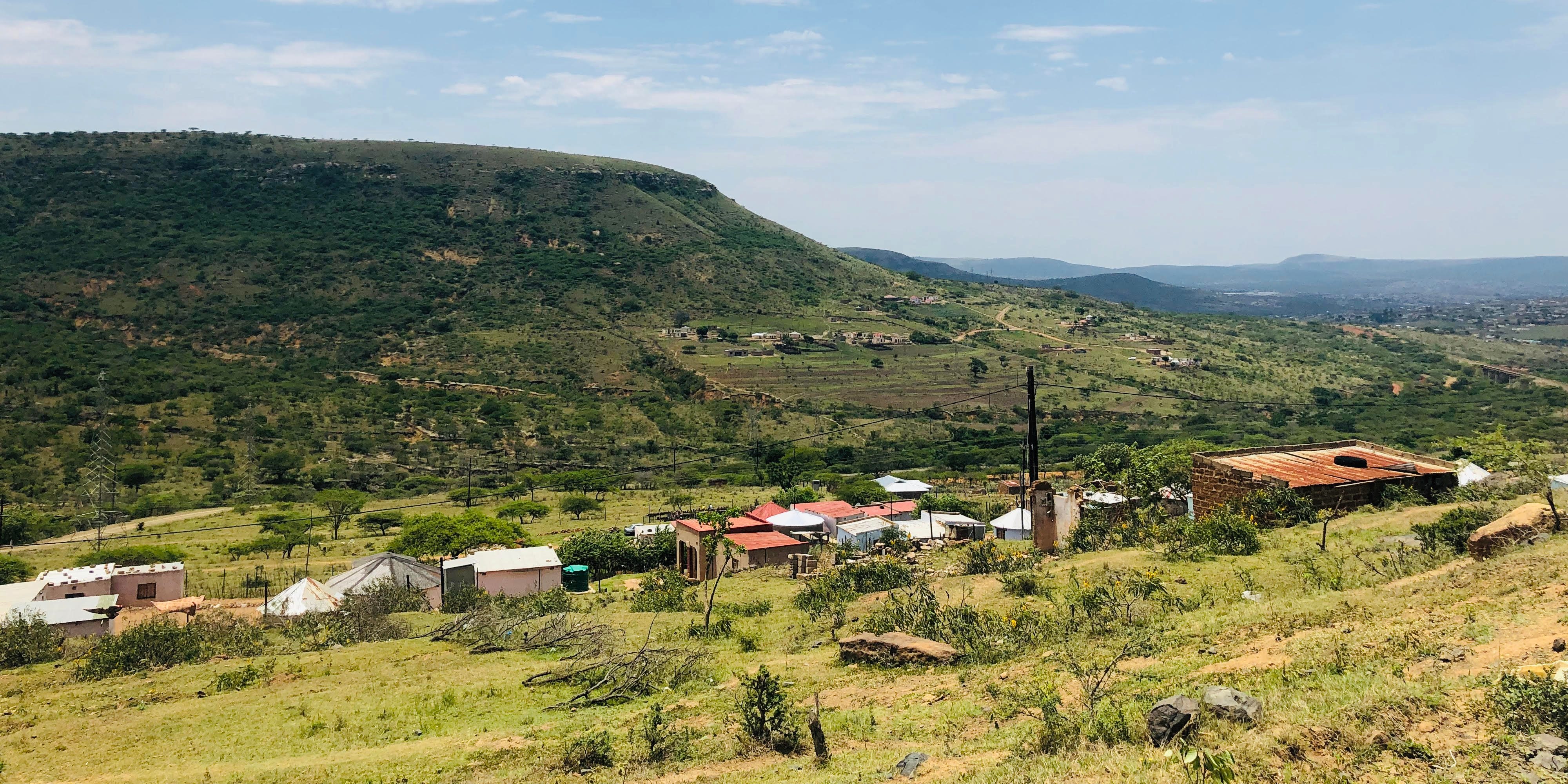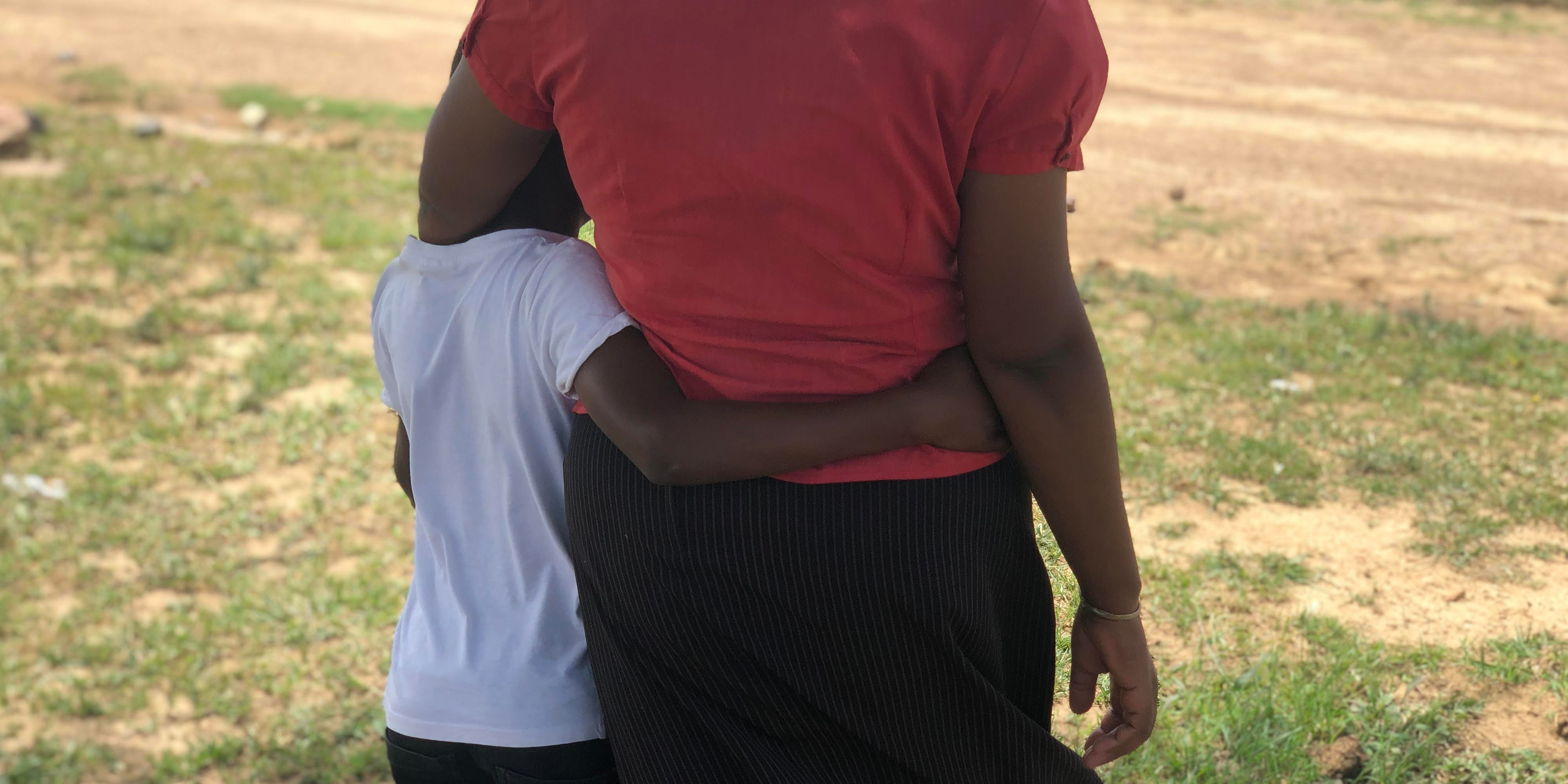The end credits of the Dlamini* household’s favourite soap opera start rolling. For this family, the Maskhandi tune is like an alarm clock — a daily weekday reminder for 14-year-old Zweli*.
At the tune, he gets up from the maroon couch in the lounge, goes into the bedroom and gets his medication. He fetches a glass of water in the kitchen and the pill slips down his throat.
“It’s easier for me to remember during the week because of Uzalo,” says his mother, Nosipho*. “But even when I forget, he remembers.”
This has been the Dlaminis’ routine since May. At nine o’ clock every night, Zweli takes a single pill. He will do this for the rest of his life.
“He has always been a healthy child, he never gave me any problems,” says Nosipho.
But six months ago Zweli fell ill. He was coughing, had a pain in his chest and was endlessly fatigued and weak. An anxious Nosipho took her son to their local clinic in Mabedlana Village, about 20km from Ulundi in KwaZulu-Natal.
 Nosipho Dlamini’s* son, Zweli, was diagnosed with HIV about six months ago
Nosipho Dlamini’s* son, Zweli, was diagnosed with HIV about six months ago
“I told the nurses I thought it was tuberculosis (TB),” she remembers. At the clinic, nurses tested Zweli for TB as well as HIV. He was diagnosed HIV-positive.
Disclosing HIV to children
Zweli is one of about 213,000 children under the age of 14 living with HIV, according to the 2017 HIV household survey conducted by the Human Sciences Research Council (HSRC). About 60% of them were on antiretroviral (ARV) treatment in the same year. Children in this age group make up less than three percent of all infections in the country.
According to the Children’s Act of 2005, children can only be tested for HIV if it is in their “best interests”, for instance, when babies are born to HIV-positive mothers or children are survivors of sexual assault, states a 2016 study published in the South African Medical Journal. Children above the age of 12 years and those deemed to be “sufficiently mature” can consent to HIV testing.
But before tests are done, health workers are required to evaluate whether the child is mature enough to consent and assess whether the child understands the implications of testing. Implications to be considered include the possible stress of testing positive; possible stigma they may face from their parents and community; and the benefit of using antiretrovirals (ARVs). The act also stipulates that a parent, guardian or provincial head of the Department of Social Development can consent for the test if a child is younger than 12.
But it’s challenging to encourage teenagers to test for HIV, says Phindile Sangeni, a nurse who works at the Health System Trust (HST) in the Zululand area of KwaZulu-Natal.
 Mabedlana village in Ulundi
Mabedlana village in Ulundi
“Most adolescents think they don’t need to test and often think they aren’t at risk of acquiring HIV,” she explains. “It’s only when we explain how they can get infected — for example, by contracting the virus from their mother — that they start to see the need to test.”
In September, the Trust started Kids Alive — a programme that offers psychological and emotional support for children living with HIV and their caregivers — in the northern KwaZulu-Natal region. Through the programme, health workers at local clinics are trained in how to provide young patients with age-appropriate knowledge on HIV and to guide their guardians on how to disclose the children’s HIV status to them.
In the beginning, health workers were unable to disclose to children younger than 12 because their parents were reluctant to do so, says HST clinical advisor Makhosi Khoza. “Caregivers were worried about how children would react to finding out about the HIV status. This is why it’s important to make sure that they are also well informed about HIV.”
Letting sleeping germs lie
Thandi Gumede* and her family live in Mthinzima, less than 10km from the Dlaminis’ house. The women don’t know each other. But they have one thing in common — the thought of telling the children they love that they are HIV-positive terrified them.
“I didn’t know where to start, or what to say,” says Thandi, who lives with her eight-year-old nephew, Mthokosizi*. Mthokosizi has been on ARVs since 2010 when he was two years old. “I felt like it wasn’t my place to tell him because I’m not his mother. He’ll have questions I don’t have answers to.”
When Mthokosizi was much younger his treatment came in the form of syrups that Thandi had to give him twice a day — once in the morning and again at night. Now that he’s older he takes pills every evening.
 Thandi and Mthokosizi Gumede
Thandi and Mthokosizi Gumede
HIV-positive children and the adults who take care of them prefer ARVs that come as pills instead of syrups, a 2012 study published in Plos One found. The combination of drugs in syrups typically come in bottles which are harder to hide than tablets, caregivers said, making them easily recognisable as HIV drugs. This is dangerous, particularly in communities where HIV-positive people are still stigmatised.
Explaining HIV to children can be challenging, says Thandi, especially when they are young.
Thandi has undergone training with HST staff who encouraged her to use words that her young nephew would understand. They also provided a picture storybook that she and Mthokosizi could read together.
If you ask Mthokosizi to explain his illness, this is what he says:
“There are two kinds of sleeping germs, the strong sleeping germs are the ones I need to take pills for every day to keep them asleep... The other sleeping germs are not so strong, all they need is medication for three days and they can sleep.”
The word “HIV” has not yet been introduced to him, as Thandi believes he is still too young to fully understand. What he does understand though, is that he has to take his medication every day in order to stay healthy.
Zweli fully understands what it means to be HIV-positive, but he prefers not to talk about it.
“He tells me all the time: ‘Ma, I just want to take my medication and stay alive,” says Nosipho. “That’s what is important for him.” HIV stigma still prevails in their community, she says. Only she and her children know about Zweli’s status. “Our neighbours kept asking why we are always going to the clinic. I just told them that he has TB — that is easier explain than HIV,” says Nosipho.
A fear of discrimination and stigmatisation make parents wary of disclosing to their children, says Khoza. They are afraid that their kids will be shunned from their communities.
“The only way to make it easier is if everyone is well informed and educated about how HIV works,” she says.
So far, fewer than 20% of children who are on treatment know their HIV status, according to HST. The organisation’s goal is to change this through support groups for caregivers and children, training nurses to talk about HIV with children and teaching caregivers to talk about HIV in a relatable manner.
A long journey lies ahead for both the Dlamini and Gumede families. Thandi will have to again muster the courage to talk to Mthokosizi when he is much older — when the “sleeping germs” become HIV. Zweli, on the other hand, will have to learn to be more open about his feelings. “This isn’t the life I would’ve chosen for my child,” says Nosipho. “But at least he is alive.” DM
*Not their real names
Expenses for the trip to Zululand District was paid for by the Health Systems Trust.




 Thandi and Mthokosizi Gumede
Thandi and Mthokosizi Gumede